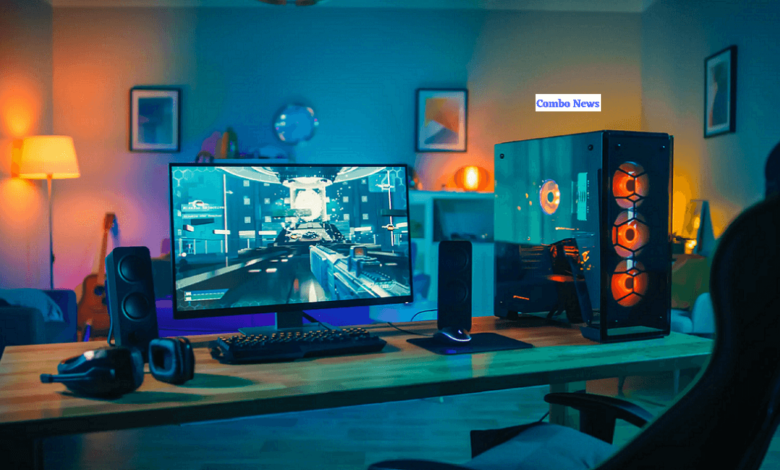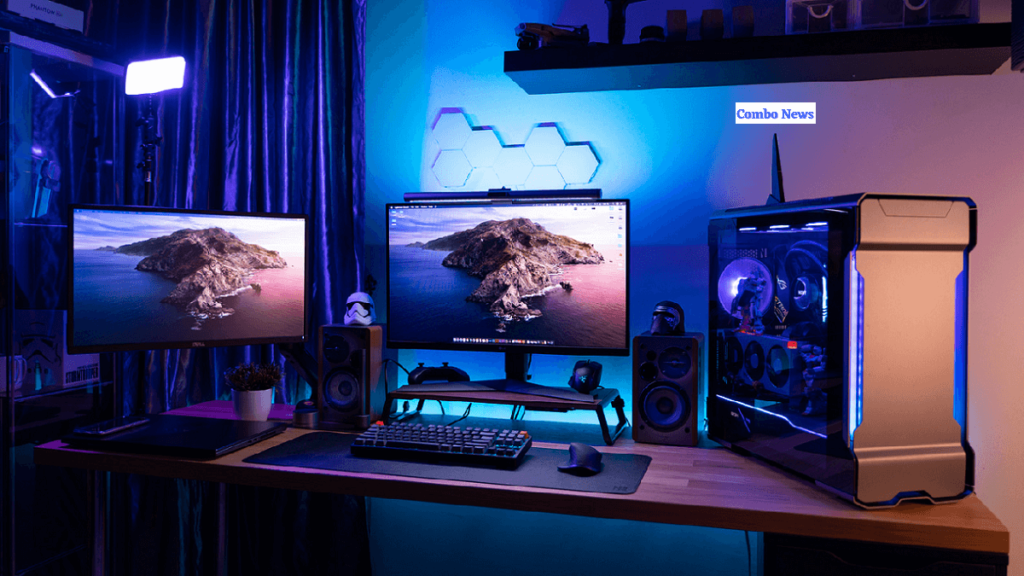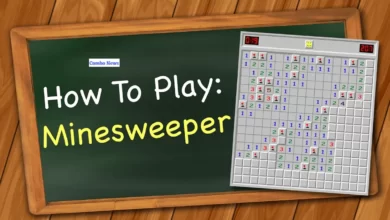
Cost, graphics, processor, RAM, and hard drive in Gaming PC
One of the finest methods to play the newest games at high resolutions and amazing visual quality is on a gaming PC. When purchasing one, it might be challenging to know where to begin with so many brands and specs to take into account.
This buying guide will assist you in selecting the best gaming PC for your needs, preferences, and financial situation.
What Is a Gaming PC?
A gaming PC is, at its core, just a PC, although it differs from most other PCs in several ways. A standard PC is only able to run rudimentary games at low resolutions, while it can run office-based applications, access the internet, and allow for basic picture or video editing.

Choosing a gaming system with technology specifically designed for gaming is crucial if you want to play games at today’s level on your PC. While a standard PC may play certain simple or older games, the most recent games require a dedicated graphics card and more powerful hardware. The most computationally difficult activities a machine can perform are among today’s top games.
5 Gaming PC Specs to Consider When Buying a Gaming PC
Certain important considerations are unique from purchasing a typical PC. You’ll notice that different gaming PCs provide various features and characteristics when you look at them.
A well-balanced gaming PC is crucial, from ensuring you have the finest storage for it to choosing the proper specifications. The following are the five crucial aspects to consider when buying a new gaming PC:
- Cost
- Graphics Card
- Processor/RAM
- Hard Drive
- Out of the box or custom?
Also Read: Samsung Galaxy M34 5G: Specifications, Price, and Availability
How Much Should a Gaming PC Cost?
Getting a low-cost gaming PC for $500 and a high-end gaming PC for $5,000 is feasible. In the end, the amount you choose to pay depends entirely on you and your financial situation.
The more money you spend, the more probable it is that you will buy high-quality parts. As a result, it is reasonable to invest a little extra up front to ensure that a gaming PC will last longer.
That, however, is not always feasible. Even on a tight budget, you may make a wise purchase and have a fantastic gaming PC.
| Price Range | What You Can Expect |
| $500-$1000 | Can handle games that don’t involve high-end graphics and older games. Best for users who don’t need to play games at high resolutions or quality levels. Note: Not suitable for the games like Forza Horizon 5, Cyberpunk 2077, or Control. |
| $1000-$1500 | Able to play the latest games, but you might need to lower resolutions to 1080p and reduce detail levels so they don’t stutter. This range is best for those willing to compromise or keen on playing older games with lower requirements. |
| $1500-$3000 | Able to play the latest games at a high resolution, including 4K gaming. Best for players who don’t want to scrimp on image quality by spending less. |
| $3000-$5000 | Able to play the latest games and ready for future games with higher requirements. Best for players with a lot of spare cash. |
A decent gaming PC typically costs between $1,500 and $2,000 (the middle two rows in the table), especially with price reductions during sales seasons.
Also Read: The Google Pixel Tablet does better than my iPad Air: 7 points
What Kind of Graphics Card Should a Gaming PC Have?
The graphics (video) card is the most important part of any gaming computer. Your ability to play video games at high resolutions and with the most graphical elements activated is largely dependent on your graphics card. They rank among the most costly parts available.
Look for:
- A card suitable for playing at 1080p resolution at minimum with 4K resolution an option depending on budget.
- The most powerful GPU processor you can afford.
- The most GPU RAM you can afford.
AMD and Nvidia are the two businesses that produce graphics cards. The RTX 30-series of graphics cards from Nvidia now provide the greatest graphics cards. The GeForce RTX 3090 Ti is the greatest graphics card if money is no object, but when purchasing a gaming PC, you are more likely to find cards in the RTX 3060 or 3070 range.
The RTX 30-series is often the best option if you want to play games at 4K resolutions or with visual settings at high or ultra-high.
If you have a limited budget, AMD is still something to keep an eye on because the RX 6000 Series is a viable option. With somewhat lower graphic quality levels and 1080p resolutions, these GPUs are ideal for gaming. If you’re willing, the majority of games can run at 1080p or lower visual settings.
The most recent Call of Duty titles and Final Fantasy XIV will scale down to 1080p, but lower-end graphics cards may cause games like Cyberpunk 2077 to stutter a little. Most GPUs can run enduring favourites like Fortnite because it scales effectively.
Also Read: Garmin reveals high-end smartwatch: With deep pockets for explorers
In either case, it’s worth paying attention to the model number.
When purchased as a desktop system, the most recent GeForce RTX 30-series card should cost about $200 more than a 20-series GPU card, which normally costs approximately $300 less. Prices regularly change as a result of the ongoing shortages of microchips worldwide.
Lastly, check the card’s memory to determine how much is available. The performance of a graphics card with 12 GB of RAM will probably be better than one with 8 GB. GPU RAM, sometimes referred to as VRAM (video random access memory), is a special kind of RAM that only supports your computer’s graphics card and not any other components of your system.
It cannot be later upgraded, unlike standard RAM. A graphics card with more VRAM can access information like game textures or other effects more rapidly than one with less.
Which Processor and RAM Should a Gaming PC Have?
When choosing a gaming computer, the two possibilities are Intel and AMD. The most potent gaming CPUs vary in power based on your budget. Similar to graphics cards, a larger number generally indicates stronger processing capability.
A processor, commonly known as a CPU, is the equivalent of your computer’s brain. It is in charge of deciphering and carrying out the majority of what happens on your screen. How quickly it functions and completes tasks depends on its speed and number of cores.
A core is a processor inside a CPU. Most CPUs have four to eight cores.
Similar to VRAM, computer RAM works by aiding the main CPU rather than the graphics card’s processor. Your system’s ability to retrieve temporary data is improved by having more RAM, which speeds up operations.
You need 16GB of RAM, at the very least. Although the average PC can multitask with 8GB of RAM, 16GB is pretty much the bare minimum you need for gaming because games are far more resource-intensive than web surfing or office software.
When your system is loading fresh data for a fast-paced game, you can relax knowing there are no bottlenecks if you have at least 16GB of RAM.
RAM is not created equal. Make sure you look at the RAM’s kind and speed. The most recent and quickest RAM is DDR5, yet many systems still utilise DDR4. Avoid using anything less than DDR4.
For the greatest performance with Intel CPUs, the RAM must operate at 3,200 MHz, although AMD systems can handle 3,600 MHz. Slower RAM will function, but your computer’s speed can be affected while it tries to process all the data due to a bottleneck.
AMD offers both the Ryzen 9 series for high-end gaming and the Ryzen 5 series, which you are more likely to find in a gaming PC system.
As an alternative, Intel offers the i9 family for high-end gaming as well as the i5 and i7 for less expensive but still fast gaming. The CPU industry is a rapidly evolving field, but if you stay with the more recent models and higher numbers (for both AMD and Intel), you should be good.
What Type of Hard Drive Should a Gaming PC Have?
Solid State Drives (SSDs) are a common storage option for gaming PCs. Avoid the one if it just offers standard hard drive storage. The only exception is if the gaming computer includes both SSD and HDD storage.
HDD vs SSD Storage
SSD storage is one of the simplest methods to speed up your gaming PC. With SSD storage, your PC can read the files more rapidly, lowering game loading times and generally enhancing performance.
You must be sure to get as much SSD storage as you can. The newest titles, like Call of Duty: Vanguard, require over 100GB of space, so you won’t be able to install numerous games at once on certain gaming PCs’ 256GB of SSD storage. Instead, if you want to move between games, you’ll need to uninstall them regularly.
Reinstalling games might take some time because the majority are digital or require lengthy fixes. You should also provide for plenty of extra space so that the aforementioned fixes can expand and be installed.
Should I Build My Own Gaming PC?
It’s absolutely feasible to construct your own gaming PC, which is what many people like to do. Creating a PC is similar to building with electrical parts on a somewhat more complex version of LEGO.
When it comes to purchasing components that function together, things become challenging. Unless you buy a package deal from a merchant that contains a number of compatible components, it takes quite a bit of study to obtain all the right pieces. The issue of growing expenses is another.
A graphics card may now cost more than an entire gaming PC tower, so constructing your own PC is no longer more affordable than buying one that has already been assembled.
Who Should Buy a Gaming PC?
A few key types of gamers within society will find the most benefit from buying a gaming PC.
- Casual gamer. one or two video games that a player truly enjoys. A casual gamer is not interested in spending a lot of money on a gaming PC, but they are addicted to one or two games that they enjoy and are familiar with, such as an MMO or a free-to-play game like Fortnite or Apex Legends. To enhance the gaming experience at this level, getting an inexpensive gaming PC may be worthwhile.
- People who game more than 20 hours a week. A gaming PC provides lots of freedom with regard to game options if you want to utilise a PC over a game console. PC games are frequently less expensive to buy than their console counterparts.
- Streamers. You need a gaming PC that can play games swiftly and with acceptable quality if you want to stream your gaming content on Twitch and other streaming platforms. Nobody desires to see a streamer have trouble loading a game.
- Home workers. A gaming PC allows you to blend work and pleasure so that your system successfully meets all of your needs during the day and can ramp up into game mode at night. If you work from home, you undoubtedly need a business PC.
- Experienced gamers who like to mod. One benefit of using a gaming PC instead of a console is that you can typically modify or adapt games far more on a PC. With numerous cheap or free modifications, it’s a terrific way to enhance a beloved game.
What Should I Do After I Buy a Gaming PC?
Once you transfer your old PC’s files, setting up your new one will be quite simple if you’ve used a PC previously. Here is a brief summary of what to do next after purchasing a gaming PC.
- Buy a new monitor. You will need a new monitor as most gaming PCs don’t have one. Do your research on the greatest gaming displays you can buy, and don’t try to cut corners. A standard monitor will do, but a gaming monitor is preferable since it has greater refresh rates and input latency, which means there is no chance of motion blur or a momentarily unpleasant image.
- Buy new peripherals. A new keyboard, mouse, headset, and potentially a game controller are also required for your gaming PC. It’s a good excuse to upgrade even if you already have them (games console controllers work nicely). A gaming keyboard and mouse are an excellent option for the majority of gamers, but a headset is only necessary if you want to communicate with friends or want more immersive sound. Numerous gaming mouse come with faster speeds and programmable buttons. A mechanical gaming keyboard can be more responsive than a standard membrane-based one when playing fast-paced games.
- Find a suitable living space for it. Make place in your living room, study, or den for the new gaming computer. Make some cable organisation so that the new setup is prepared for the new gear.
More Tips for Buying a Gaming PC
There are a few more factors you might want to think about before making the decision to purchase a gaming PC.
- Do you need a gaming PC? Because you never have the time to play games, do you have an unused gaming system? Do you have a computer that is capable of running the games you wish to play? If so, a gaming PC might not be necessary. When a good gaming PC costs so much, resist the urge to get one just for fun.
- A gaming laptop might be a better choice. A gaming laptop can be a decent choice if you prefer to game on the road or have a small house. A gaming laptop, albeit sometimes more expensive than a standard gaming PC, is nonetheless quite practical.
- Don’t forget the aesthetic. Gaming computers don’t have to be drab, hardware-filled black towers. In order to view inside your PC, you can now add RGB lights and stylish windows. Find one that complements both your aesthetic and your personality.
FAQ
How do I build a gaming PC?
Instead of purchasing, you may assemble your own computer, allowing you to choose the RAM, CPUs, and aesthetic. Starting with a simple casing, you’ll purchase and install the components (such as a logic board, RAM, and CPU).
How do I optimize a PC for gaming?
Most methods for improving a PC’s ability to run games entail upgrades. You can add more RAM, swap out the graphics card, and update the drivers for significant adjustments, but you can also perform minor optimisations without purchasing more hardware. Try terminating pointless processes in Task Manager, removing startup and shutdown clutter, and overclocking to get better performance from your system.
Also Read: Apple iPhone 15: All you need to know








